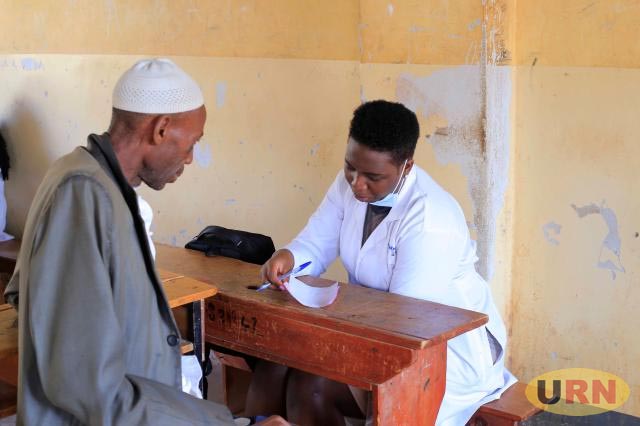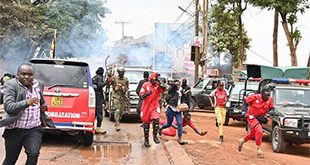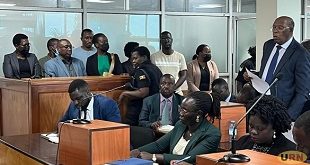
How Kampala Based Catholics from Mbarara Archdiocese Collectively Impact Livelihood
Mbararaf, Uganda | THE INDEPENDENT | Collective efforts put up by the Catholic faithful who stay in Kampala but originate from the Mbarara Archdiocese have continued to have a lasting impact on the lives of fellow diocesans back home. This mark has been created by the community outreach program dubbed the Caravan, through which they have been extending support to those in need since 2013.
The group is bound together by the Archdiocese of Mbarara Development Association (AMDA), through which they offer pro bono services in a number of aspects, including but not limited to medical, legal, and financial literacy, among others. The group’s annual report for the 2024 Caravan indicates having extended medical support to over 5,000 people in five days, between the 5th to 8th of September 2024, in the parishes of Rushooka and Buzibwera.
“During the event, a total of 5,258 individuals received healthcare services for various illnesses and conditions. In 2023, 9,334 patients were served at Ibanda parish; in 2022, 4,782 individuals received care at Butare parish in Buhweju. In 2019, the medical camp was held in Mashanga, where 4,812 patients were treated. In 2018, the Caravan visited Rushanje, providing services to 3,784 people. In 2017, the camp was organized in Kazo, reaching 4,289 individuals. In 2016, 3,792 people were served at Kitabi parish. In 2015, 2,644 people were served at Rwera parish,” reads part of the report.
It further states that the biggest number of patients were those seeking eye-related services, totaling 1,248 cases, of which 65 were cataract surgeries. The caravan dug two shallow wells to provide water for the Nyarubumba community, then distributed up to 10,000 coffee seedlings, 6,000 fruit seedlings, 19,000 eucalyptus seedlings, and 11,520 indigenous trees. To support education, 100 textbooks of the new curriculum were distributed.
Father Darius Magunda, the group’s chaplain, says that the Caravan is a good way of sharing the good news of love among humans. “It is also an opportunity to share the gift of faith, especially with the most needy,” he said, adding that the main objective of the caravan is to share faith with the people in the archdiocese. According to Fr. Magunda, it was necessary for the faithful living in Kampala to go back home and share their blessings with fellow diocesans who are not as blessed.
“Our understanding and conviction that Christ came that we may have life and have it in full (John 10:10) has inspired us to seek integral and holistic development of a whole person. It is a source of joy to witness our faith and share our God-given gifts.” He expressed gratitude for the initiative and the generosity exhibited by the partners and donors: “It is our hope and wish that this tradition will continue to grow in the future.”
Chris Gumisiriza, the AMDA chairman, mentions that the Caravan is guided by seven pillars: Unity, Spiritual Development, Economic Empowerment, Education, Health and Wellness, and Environmental Sustainability, adding that this year’s event had the highest number of service providers. “This year’s caravan was particularly significant, as it brought the largest number of specialized medical services, welcomed new partners, and featured enhanced activities to maximize our impact. A total of 259 AMDA members volunteered their time and skills, alongside support from up to 614 health workers.”
Gumisiriza says that economic empowerment talks focusing on mindset change, financial literacy, and household income, along with legal aid clinics, were an instrumental component of the event, as well as counseling services, especially for the married. This act of kindness by these faithful exemplifies proper human coexistence and emphasizes the biblical teaching of helping. Meanwhile, it brings out what public administration should focus its energies on if the ordinary Ugandan’s welfare is to be uplifted.
****
URN
 The Independent Uganda: You get the Truth we Pay the Price
The Independent Uganda: You get the Truth we Pay the Price


